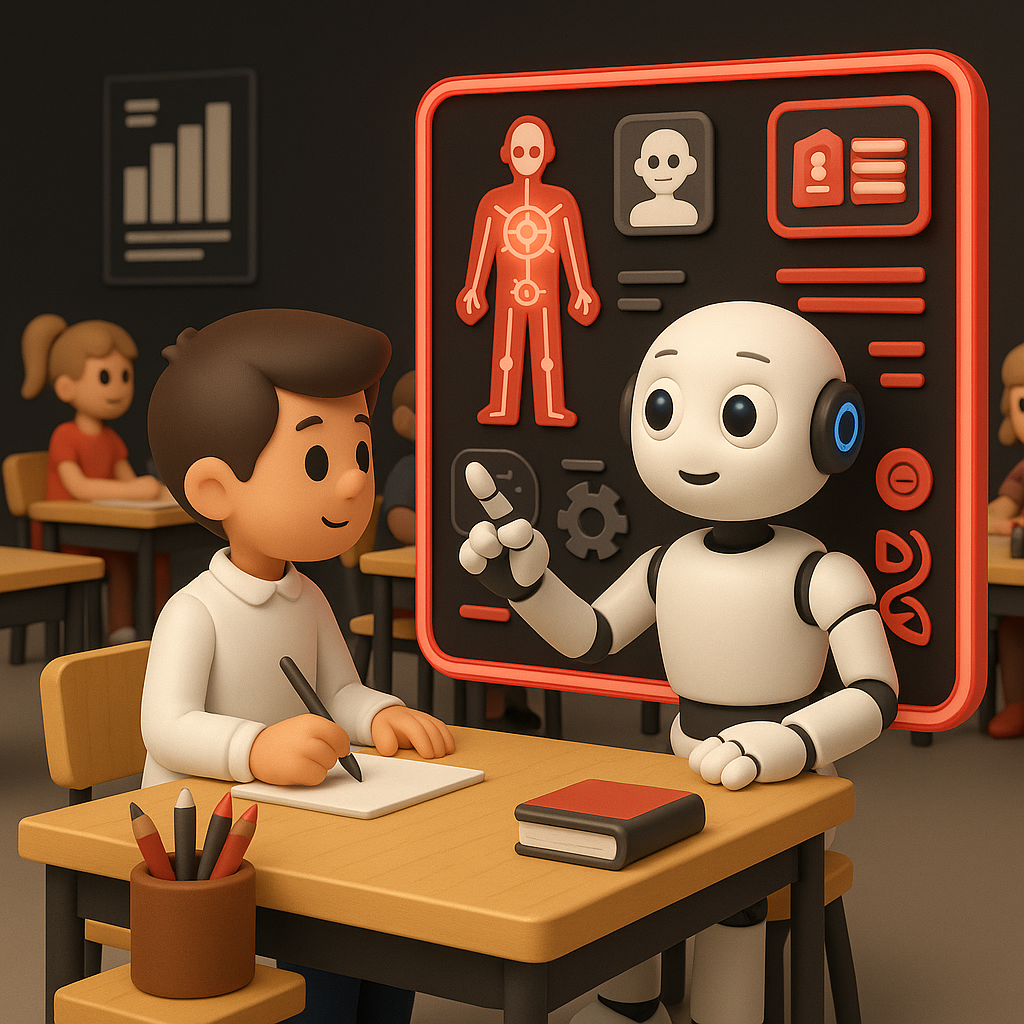Top Affordable Colleges for B.Tech Mechanical Engineering in 2025
When planning a career in engineering, especially a B.Tech Mechanical Engineering degree, one of the first concerns for students and parents is identifying affordable colleges with strong education and placement records. In 2025, cost-effective quality education is more important than ever, as fees can range widely across India. This blog will guide you through everything about pursuing a B.Tech Mechanical Engineering degree with a focus on affordability and quality at Marwadi University, one of the best engineering colleges in Gujarat and a leader in student placements.
Why Choose a Mechanical B Tech Degree for Career Growth?
Mechanical engineering is one of the oldest and most versatile engineering disciplines. A B.Tech Mechanical Engineering degree opens up diverse career options across sectors like automotive, aerospace, energy, robotics, and manufacturing. With rapid industrial growth and technological advancements, mechanical engineers are in high demand. Choosing this degree helps students build foundational skills that apply to many modern technologies.
With rising tuition costs, selecting a college that balances quality and fees becomes essential for long-term career growth and financial planning.
Benefits of Choosing Mechanical Engineering Course at Marwadi University
Marwadi University stands out as a best placement university in India, offering a blend of affordability, quality faculty, modern teaching methods, and strong industry connections.
Key benefits of choosing Marwadi for your B.Tech Mechanical Engineering include:
Fees structured reasonably for Indian students at around ₹6,00,000 for 4 years.
Curriculum aligned with industry needs covering future-ready subjects like AI, robotics, sustainable energy, and 3D printing.
State-supported scholarships and easy installment plans.
Regular campus placement drives connecting students with top recruiters providing packages up to ₹34.5 LPA.
BTech Mechanical Engineering Eligibility Criteria
To apply for the B.Tech Mechanical Engineering program at Marwadi University, candidates must have:
Passed 10+2 (HSC) or equivalent with at least 50% marks.
Compulsory subjects include Mathematics and Physics.
Additional preferred knowledge in Chemistry, Biology, or technical vocational subjects.
This eligibility ensures a solid foundation in science and math, critical for engineering study success.
BTech Mechanical Engineering Admission Process 2025
Admissions to the B.Tech Mechanical Engineering program at Marwadi University are straightforward:
Step 1: Register or log in on the university’s admission portal.
Step 2: Fill out the application form with academic details.
Step 3: Upload necessary documents like mark sheets and identity proofs.
Step 4: Pay the application and fees.
Step 5: Confirm admission and join the academic session starting July 2025.
This user-friendly process invites students from all over Gujarat and India to apply online without hassle.
BTech Mechanical Engineering Entrance Exams 2026
Marwadi University accepts scores from popular entrance exams such as:
JEE Main (National level)
GUJCET (Gujarat state level)
CUET and other recognized examinations
These competitive exams ensure merit-based admissions, enabling deserving students to access quality education affordably while maintaining high academic standards.
BTech Mechanical Engineering Syllabus & Subjects
The syllabus at Marwadi University covers all essential topics split across 8 semesters:
Engineering Mathematics
Elements of Mechanical Engineering
Physics and Environmental Studies
Mechanics, Thermodynamics, Fluid Mechanics
Manufacturing and Production Technology
Machine Design
Robotics, AI Applications in Mechanical Engineering
Detailed subject lists and semester outlines are available on the university website, helping students plan their study trajectory and practical experiences.
Best BTech Mechanical Engineering Colleges in India
While many students aim for top-ranked colleges, affordability combined with placement opportunities is key. Marwadi University is one of the best engineering colleges in Gujarat offering quality education at moderate fees, making it a preferred choice for students looking to maximize ROI.
Its status as a best placement university in India is backed by consistent recruitment success and partnerships with leading companies in mechanical engineering sectors.
Popular Private BTech Mechanical Engineering Colleges in India
Among private colleges, Marwadi University delivers affordability without compromising standards. Its offerings include:
Advanced labs and digital tools for experiential learning.
Internship programs from Year 2 onwards to connect theory with industry.
Soft skill and personality development sessions to boost employability.
Students gain real-world readiness while benefiting from fee structures designed to support middle-class aspirants aiming for engineering excellence.
BTech Mechanical Engineering: Salary
Graduates from Marwadi University’s B.Tech Mechanical Engineering program enjoy competitive salary packages:
Average placement packages start from ₹5 LPA.
Top performers secure offers exceeding ₹30 LPA.
Median salary ranges between ₹6–8 LPA depending on specialization and company profile.
This blend of quality education and good pay scales reflects the university’s emphasis on career-oriented learning.
BTech Mechanical Engineering Career Scope
Mechanical engineers have versatile career paths, with opportunities in:
Automotive design and manufacturing
Aerospace engineering and drones
Renewable energy systems
Robotics and automation
Research and development
Marwadi University equips students with interdisciplinary skills to excel in emerging technologies, maintaining relevance in the evolving engineering landscape.
BTech Mechanical Engineering Job Profiles
Post graduation, aspiring students can pursue roles including:
Mechanical Design Engineer
Process Engineer
Project Engineer/Manager
Control & Automation Engineer
Maintenance Engineer
Quality Assurance Engineer
These roles exist across sectors in India and globally, thanks to the university’s focus on practical knowledge backed by strong industrial exposure.
BTech Mechanical Engineering Top Recruiters
Marwadi University hosts over 500 top recruiters annually, including leading national and international companies. Regular placements and internships ensure students meet industry demands early. This recruitment network highlights Marwadi’s stature as a leading best placement university in India for mechanical engineering.
BTech Mechanical Engineering Course FAQs
Q1: What is the duration of the B.Tech Mechanical Engineering course?
A: Four years divided into eight semesters.
Q2: What is the fee structure for the course?
A: Approximately ₹6,00,000 for the full program.
Q3: What is the eligibility for admission?
A: 10+2 with mathematics and physics with minimum 50% marks.
Q4: Does Marwadi University provide placement assistance?
A: Yes, with over 500 recruiter companies regularly visiting the campus.
Popular BTech Mechanical Engineering Specializations
Students at Marwadi University can explore specializations such as:
Artificial Intelligence & Machine Learning in Mechanical Systems
Robotics and Automation
Energy Systems and Biofuels
Computational Mechanics and Design
These specializations prepare students for emerging industry demands and innovation challenges.
Final Thoughts
Choosing the right college for your B.Tech Mechanical Engineering degree is a critical step that impacts your education quality, financial investment, and career trajectory. Marwadi University uniquely balances affordable fees, modern curriculum, and a proven placement record, establishing itself as a distinguished name among best engineering colleges in Gujarat and a best placement university in India.
From eligibility to admission to career prospects, Marwadi University offers clear pathways for bright engineering aspirants in 2025. Be sure to review the latest fee structure and course details on the official Marwadi University website and start your journey to becoming a skilled mechanical engineer.
https://www.marwadiuniversity.ac.in/top-affordable-colleges-for-b-tech-mechanical-engineering-in-2025/
Top Affordable Colleges for B.Tech Mechanical Engineering in 2025
When planning a career in engineering, especially a B.Tech Mechanical Engineering degree, one of the first concerns for students and parents is identifying affordable colleges with strong education and placement records. In 2025, cost-effective quality education is more important than ever, as fees can range widely across India. This blog will guide you through everything about pursuing a B.Tech Mechanical Engineering degree with a focus on affordability and quality at Marwadi University, one of the best engineering colleges in Gujarat and a leader in student placements.
Why Choose a Mechanical B Tech Degree for Career Growth?
Mechanical engineering is one of the oldest and most versatile engineering disciplines. A B.Tech Mechanical Engineering degree opens up diverse career options across sectors like automotive, aerospace, energy, robotics, and manufacturing. With rapid industrial growth and technological advancements, mechanical engineers are in high demand. Choosing this degree helps students build foundational skills that apply to many modern technologies.
With rising tuition costs, selecting a college that balances quality and fees becomes essential for long-term career growth and financial planning.
Benefits of Choosing Mechanical Engineering Course at Marwadi University
Marwadi University stands out as a best placement university in India, offering a blend of affordability, quality faculty, modern teaching methods, and strong industry connections.
Key benefits of choosing Marwadi for your B.Tech Mechanical Engineering include:
Fees structured reasonably for Indian students at around ₹6,00,000 for 4 years.
Curriculum aligned with industry needs covering future-ready subjects like AI, robotics, sustainable energy, and 3D printing.
State-supported scholarships and easy installment plans.
Regular campus placement drives connecting students with top recruiters providing packages up to ₹34.5 LPA.
BTech Mechanical Engineering Eligibility Criteria
To apply for the B.Tech Mechanical Engineering program at Marwadi University, candidates must have:
Passed 10+2 (HSC) or equivalent with at least 50% marks.
Compulsory subjects include Mathematics and Physics.
Additional preferred knowledge in Chemistry, Biology, or technical vocational subjects.
This eligibility ensures a solid foundation in science and math, critical for engineering study success.
BTech Mechanical Engineering Admission Process 2025
Admissions to the B.Tech Mechanical Engineering program at Marwadi University are straightforward:
Step 1: Register or log in on the university’s admission portal.
Step 2: Fill out the application form with academic details.
Step 3: Upload necessary documents like mark sheets and identity proofs.
Step 4: Pay the application and fees.
Step 5: Confirm admission and join the academic session starting July 2025.
This user-friendly process invites students from all over Gujarat and India to apply online without hassle.
BTech Mechanical Engineering Entrance Exams 2026
Marwadi University accepts scores from popular entrance exams such as:
JEE Main (National level)
GUJCET (Gujarat state level)
CUET and other recognized examinations
These competitive exams ensure merit-based admissions, enabling deserving students to access quality education affordably while maintaining high academic standards.
BTech Mechanical Engineering Syllabus & Subjects
The syllabus at Marwadi University covers all essential topics split across 8 semesters:
Engineering Mathematics
Elements of Mechanical Engineering
Physics and Environmental Studies
Mechanics, Thermodynamics, Fluid Mechanics
Manufacturing and Production Technology
Machine Design
Robotics, AI Applications in Mechanical Engineering
Detailed subject lists and semester outlines are available on the university website, helping students plan their study trajectory and practical experiences.
Best BTech Mechanical Engineering Colleges in India
While many students aim for top-ranked colleges, affordability combined with placement opportunities is key. Marwadi University is one of the best engineering colleges in Gujarat offering quality education at moderate fees, making it a preferred choice for students looking to maximize ROI.
Its status as a best placement university in India is backed by consistent recruitment success and partnerships with leading companies in mechanical engineering sectors.
Popular Private BTech Mechanical Engineering Colleges in India
Among private colleges, Marwadi University delivers affordability without compromising standards. Its offerings include:
Advanced labs and digital tools for experiential learning.
Internship programs from Year 2 onwards to connect theory with industry.
Soft skill and personality development sessions to boost employability.
Students gain real-world readiness while benefiting from fee structures designed to support middle-class aspirants aiming for engineering excellence.
BTech Mechanical Engineering: Salary
Graduates from Marwadi University’s B.Tech Mechanical Engineering program enjoy competitive salary packages:
Average placement packages start from ₹5 LPA.
Top performers secure offers exceeding ₹30 LPA.
Median salary ranges between ₹6–8 LPA depending on specialization and company profile.
This blend of quality education and good pay scales reflects the university’s emphasis on career-oriented learning.
BTech Mechanical Engineering Career Scope
Mechanical engineers have versatile career paths, with opportunities in:
Automotive design and manufacturing
Aerospace engineering and drones
Renewable energy systems
Robotics and automation
Research and development
Marwadi University equips students with interdisciplinary skills to excel in emerging technologies, maintaining relevance in the evolving engineering landscape.
BTech Mechanical Engineering Job Profiles
Post graduation, aspiring students can pursue roles including:
Mechanical Design Engineer
Process Engineer
Project Engineer/Manager
Control & Automation Engineer
Maintenance Engineer
Quality Assurance Engineer
These roles exist across sectors in India and globally, thanks to the university’s focus on practical knowledge backed by strong industrial exposure.
BTech Mechanical Engineering Top Recruiters
Marwadi University hosts over 500 top recruiters annually, including leading national and international companies. Regular placements and internships ensure students meet industry demands early. This recruitment network highlights Marwadi’s stature as a leading best placement university in India for mechanical engineering.
BTech Mechanical Engineering Course FAQs
Q1: What is the duration of the B.Tech Mechanical Engineering course?
A: Four years divided into eight semesters.
Q2: What is the fee structure for the course?
A: Approximately ₹6,00,000 for the full program.
Q3: What is the eligibility for admission?
A: 10+2 with mathematics and physics with minimum 50% marks.
Q4: Does Marwadi University provide placement assistance?
A: Yes, with over 500 recruiter companies regularly visiting the campus.
Popular BTech Mechanical Engineering Specializations
Students at Marwadi University can explore specializations such as:
Artificial Intelligence & Machine Learning in Mechanical Systems
Robotics and Automation
Energy Systems and Biofuels
Computational Mechanics and Design
These specializations prepare students for emerging industry demands and innovation challenges.
Final Thoughts
Choosing the right college for your B.Tech Mechanical Engineering degree is a critical step that impacts your education quality, financial investment, and career trajectory. Marwadi University uniquely balances affordable fees, modern curriculum, and a proven placement record, establishing itself as a distinguished name among best engineering colleges in Gujarat and a best placement university in India.
From eligibility to admission to career prospects, Marwadi University offers clear pathways for bright engineering aspirants in 2025. Be sure to review the latest fee structure and course details on the official Marwadi University website and start your journey to becoming a skilled mechanical engineer.
https://www.marwadiuniversity.ac.in/top-affordable-colleges-for-b-tech-mechanical-engineering-in-2025/








